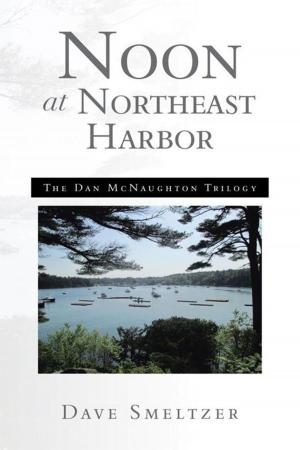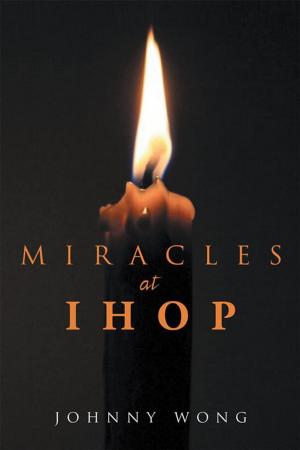| Author: | Robert M. Torrance | ISBN: | 9781462845194 |
| Publisher: | Xlibris US | Publication: | July 27, 2011 |
| Imprint: | Xlibris US | Language: | English |
| Author: | Robert M. Torrance |
| ISBN: | 9781462845194 |
| Publisher: | Xlibris US |
| Publication: | July 27, 2011 |
| Imprint: | Xlibris US |
| Language: | English |
His new translation of Dantes INFERNO with a Foreword on The Poet and the Poem; an individual note briefly recapitulating each of the 34 Cantos and explaining names and terms important for the readers understanding; and an Epilogue on the ascent to the Terrestrial Paradise reflects long familiarity with this medieval classic and assumes, as the Preface emphasizes, that far from being an inaccessibly distant monument, it speaks compellingly to contemporary readers both through graphic portrayal of horrors all too familiar to our own age, and by vividly presenting its central character (who is at once the 14th-century Florentine Dante Alighieri and each one of us traveling the journey of our lifes way) as a wandering exile, and the one living person, subject to feelings ranging from tearful pity to outraged horror, in the dead world of the eternally damned. To this extent, it is in part a Human as well as of a Divine Comedy. And although it is only the first of the three major segments of that comedy of movement from the sorrows and sufferings of Hell up the steep slopes of Purgatory to the eternal bliss of the Celestial Paradise, INFERNO can be read, as it has often been read from its own time through many centuries since, as a whole in itself. Its travelers ultimately find that their long and terrifying descent to the lowest depths of the world turns suddenly into ascent up through the previously unknown opposite hemisphere to a new world where they once again see the stars. The translation, as explained in the Foreword, is an English approximation of the terza rima of the Italian original, a difficult form invented by Dante and rarely used by later poets. This is no incidental aspect of the poem, for its interlinking of rhymes throughout each canto is fundamental to its movement. No translation can of course be perfect, especially in so difficult a meter from so different a language; and some previous English-language efforts have foundered on excessively many awkward archaisms, inversions, and forced rhymes. Yet the attempt to substitute an alliterative so-called terza rima more theoretical than audible (and only discernible, if at all, by close scrutiny of the page), has proved barely distinguishable, when read aloud (as all poetry should be read), from plain prose in which some very fine translations exist with no claim to being verse. In so far as the present translation dares hope to transmit, however incompletely, integration of the poems elevated style and subject matter with the grace of its subtly fluid verse form, it might boldly hazard a claim to be the best translation of Dantes great poem yet made in English. At the very least, anyone who knowingly undertakes so forbidding, if not indeed so impossible, an endeavor must never lasciare ogni speranza (abandon all hope), as those do who enter the gates of Hell! For to convey even a little of Dantes poetic power and beauty is already much.
His new translation of Dantes INFERNO with a Foreword on The Poet and the Poem; an individual note briefly recapitulating each of the 34 Cantos and explaining names and terms important for the readers understanding; and an Epilogue on the ascent to the Terrestrial Paradise reflects long familiarity with this medieval classic and assumes, as the Preface emphasizes, that far from being an inaccessibly distant monument, it speaks compellingly to contemporary readers both through graphic portrayal of horrors all too familiar to our own age, and by vividly presenting its central character (who is at once the 14th-century Florentine Dante Alighieri and each one of us traveling the journey of our lifes way) as a wandering exile, and the one living person, subject to feelings ranging from tearful pity to outraged horror, in the dead world of the eternally damned. To this extent, it is in part a Human as well as of a Divine Comedy. And although it is only the first of the three major segments of that comedy of movement from the sorrows and sufferings of Hell up the steep slopes of Purgatory to the eternal bliss of the Celestial Paradise, INFERNO can be read, as it has often been read from its own time through many centuries since, as a whole in itself. Its travelers ultimately find that their long and terrifying descent to the lowest depths of the world turns suddenly into ascent up through the previously unknown opposite hemisphere to a new world where they once again see the stars. The translation, as explained in the Foreword, is an English approximation of the terza rima of the Italian original, a difficult form invented by Dante and rarely used by later poets. This is no incidental aspect of the poem, for its interlinking of rhymes throughout each canto is fundamental to its movement. No translation can of course be perfect, especially in so difficult a meter from so different a language; and some previous English-language efforts have foundered on excessively many awkward archaisms, inversions, and forced rhymes. Yet the attempt to substitute an alliterative so-called terza rima more theoretical than audible (and only discernible, if at all, by close scrutiny of the page), has proved barely distinguishable, when read aloud (as all poetry should be read), from plain prose in which some very fine translations exist with no claim to being verse. In so far as the present translation dares hope to transmit, however incompletely, integration of the poems elevated style and subject matter with the grace of its subtly fluid verse form, it might boldly hazard a claim to be the best translation of Dantes great poem yet made in English. At the very least, anyone who knowingly undertakes so forbidding, if not indeed so impossible, an endeavor must never lasciare ogni speranza (abandon all hope), as those do who enter the gates of Hell! For to convey even a little of Dantes poetic power and beauty is already much.















